 Iran’s Attack on Israel
Iran’s Attack on Israel
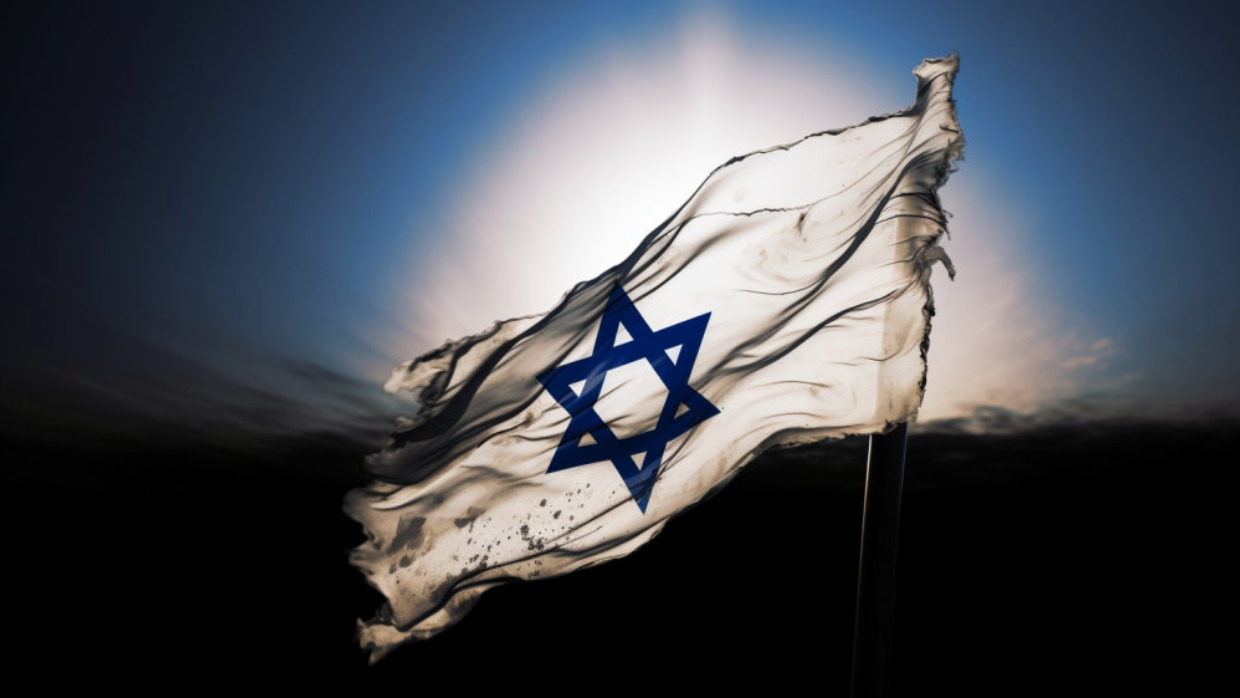

6 min read
A story of true heroism for Israel’s Remembrance Day.
Ammunition Hill in Jerusalem is Israel’s national Heritage Center for the Six-Day War. The battle that took place there was not the biggest nor the most strategic, nor did it have the most casualties. It was chosen, in the words of Israel’s iconic one-eyed general Moshe Dayan, “because of the extreme bravery that was shown here.”
The 66th Paratroopers Regiment was prepared to parachute into the Sinai. Instead, on June 5, 1967, the second day of the war, they were summoned to a different mission. The armistice lines of the War of Independence in 1948 had left Hadassah Hospital and the Hebrew University on Jerusalem’s Mt. Scopus an isolated island completely surrounded by the Jordanian army. One hundred and twenty Israeli soldiers held the territory, changing shifts every two weeks in armored vehicles that made the ten-minute drive to the Israeli side. When the Six-Day War began, Israeli’s command center understood that if the I.D.F. didn’t break a path through to Mt. Scopus, the 120 Jewish soldiers there would be butchered.
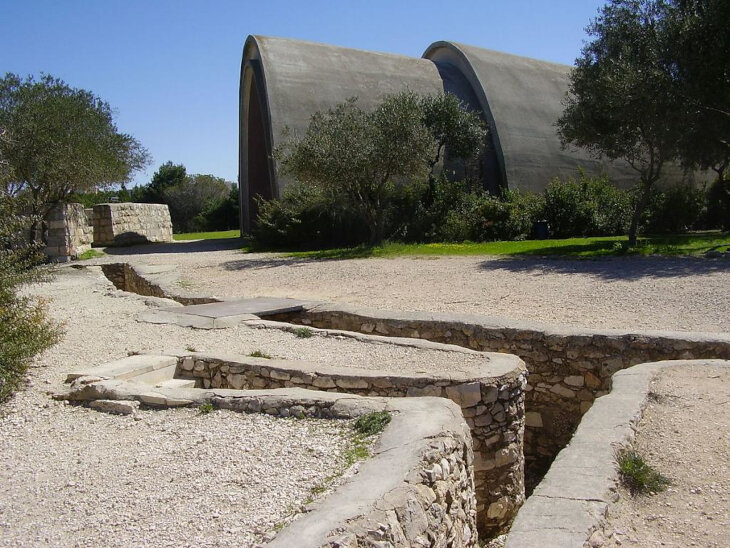 Trenches at Ammunition Hill
Trenches at Ammunition Hill
The path to Mt. Scopus led through Ammunition Hill, a fortified network of trenches and bunkers expertly built by the British, and occupied by the well-trained and well-armed Jordanian Legion. To attack this stronghold, a company of 100 Israeli paratroopers with a single map drawn on the palm of the hand of one commander, was sent in. They attacked in the middle of the moonless night.
A song commemorating the battle goes: “If you’re the first one to walk, you’ll be the first one to die.” And so it was during those endless three hours. Targeted by machine gun fire coming from the strategically placed bunkers, the commanders who led the single-file line making their way forward in the trenches fell. At pivotal moments, when it was clear that someone had to emerge from the trench to throw grenades at the bunker, a shout went out for a volunteer. Again and again, a soldier jumped out into the line of fire, not because he was suicidal, but because he realized, “If I don’t, what will happen to my friends?”
The paratroopers on Ammunition Hill were reservists, in their mid-twenties. Two thirds of them were married; one-third of them had a child. But as they saw more and more of their comrades injured and killed, their personal concerns vanished. They sacrificed themselves in astounding acts of bravery in order to save their fellows.
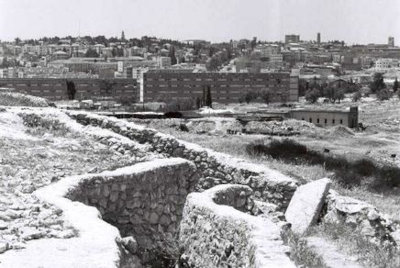
The regiment had three medics. Didi Gudel, a new immigrant from France, was shot in his hand during the first hour of fighting, rendering him useless. The second, Uri Leibowtiz, was trying to treat several wounded lying on top of each other in one trench. Suddenly, he heard the pop of a grenade going off. With seconds to spare, Uri lay on top of the wounded and took the brunt of the grenade’s fatal force.
The third medic, Yigal Arad (born Fablo Boxer in Poland), was a child Holocaust survivor. When the Jordanians surrendered and the battle was over, the surviving soldiers brought the wounded and dying to a grassy knoll. Yigal heard, over and over again, “Tell my wife that I love her,” “Tell my son when he grows up that I loved him.” Twenty-four out of the 100 paratroopers died that night, and 56 were wounded, some of them losing limbs, eyes, or their hearing.
Six years later, when Arab armies attacked Israel in the Yom Kippur War, Yigal Arad, the Holocaust survivor medic who had treated 56 soldiers on Ammunition Hill, was 33 years old. He had the choice whether to serve again. He was married with two children. From the front, he wrote to his wife, “I couldn’t bear the thought that my friends under fire would need an experienced medic, and I wouldn’t be there to help them.” Yigal was killed at the Suez Canal.
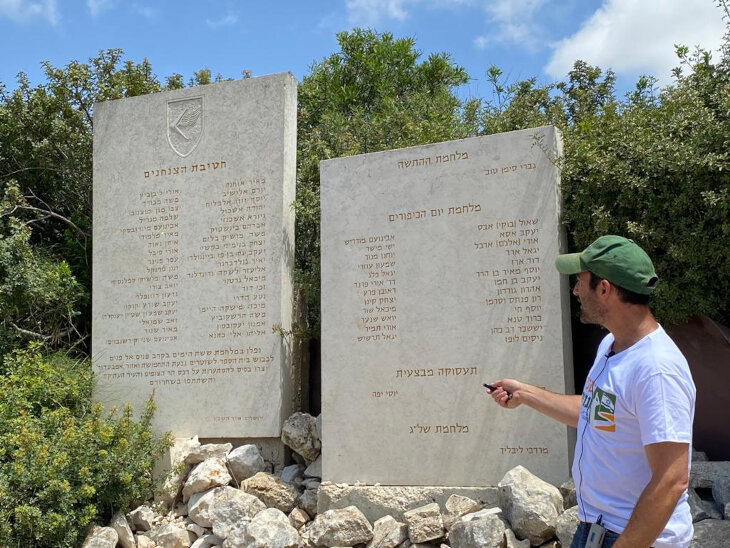 Remembering the fallen at Ammunition Hill
Remembering the fallen at Ammunition Hill
At Ammunition Hill Heritage Center there are three stone monuments. The first lists the names of the 24 Jewish soldiers killed in the battle of Ammunition Hill, plus another 12 from the 66th Paratroopers Regiment who fell in the hours before and after that battle. The second monument is to another 25 members of the 66th Paratroopers who fell in the Yom Kippur War. The third monument is the most heart-rending. It lists the children and grandchildren of the 66th Paratroopers Regiment who fell in subsequent wars or terror attacks.
Standing beside this third monument during a tour before Remembrance Day, Major General (Ret.) Yitzhak Gershon telephoned Yaki Haimovich, a soldier who, when he saw that the two commanders in front of him had been killed, stepped up to lead the squad and suffered serious injury. General Gershon asked Yaki if he had one sentence to share with the tour group. He said, “Our strength is deep in our spirit.”
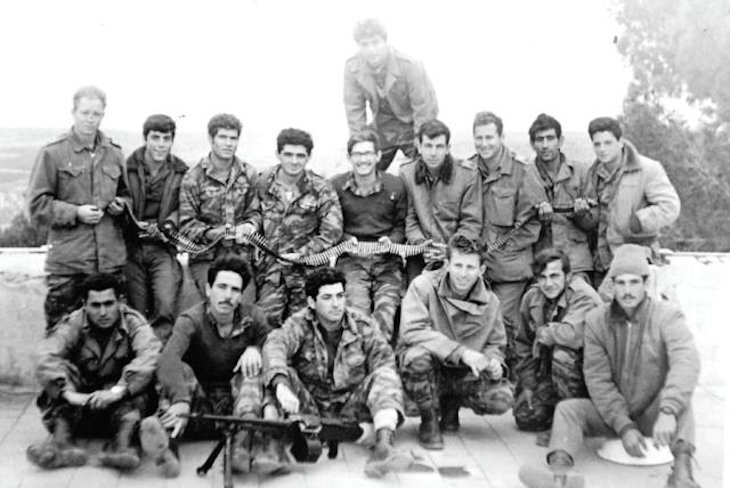 Soldiers of the 55th Paratrooper Brigade pause from training for a photo at Beit Guvrin in 1965 (photo credit: COURTESY DAN SHILOAH ARCHIVE)
Soldiers of the 55th Paratrooper Brigade pause from training for a photo at Beit Guvrin in 1965 (photo credit: COURTESY DAN SHILOAH ARCHIVE)
Major General Gershon related a story that happened just before he retired after three decades in the I.D.F. He was offered to direct the office of Friends of the I.D.F. in the United States. At first, he declined. He wanted to stay in Israel and work in the business sector. His mind was changed by a portentous encounter. He flew to America to deliver a speech at a dinner of the F.I.D.F. Afterwards, he was introduced to the evening’s honoree, a tall man with silver hair and blue eyes. The man asked General Gershon if he could hug him. The hug was long and strong.
When the man let him go, he told General Gershon, “You don’t know what it means to me to hug this uniform. I was a child in Poland looking up at the sky, wondering where our help will come from. Now, thank God we have the I.D.F.”
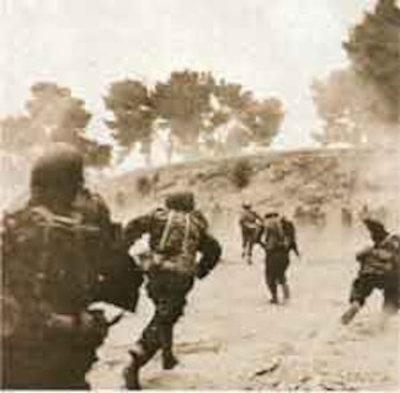
The Talmud says that people who sacrifice their lives to save other Jews are on the exalted spiritual level of the Patriarchs Abraham, Isaac, and Jacob.
As tour guide Eytan Rund, who related the personal stories behind Ammunition Hill’s monuments, said, “Remembrance Day is not just about mourning. It’s about feeling appreciation for what so many of our fellow Jews have done for us.”
Israel’s Day of Remembrance for Fallen Soldiers and Terror Victims is on Monday night/Tuesday, April 24/25, 2023.
For a unique, moving tour that delves into the personal stories behind Ammunition Hill, the Jewish Quarter, Chevron, Masada, or Mt. Herzl Military Cemetery, contact eytanrund@gmail.com.
